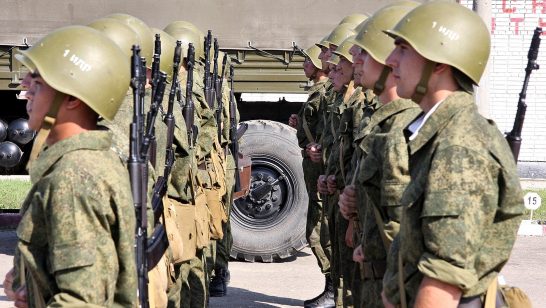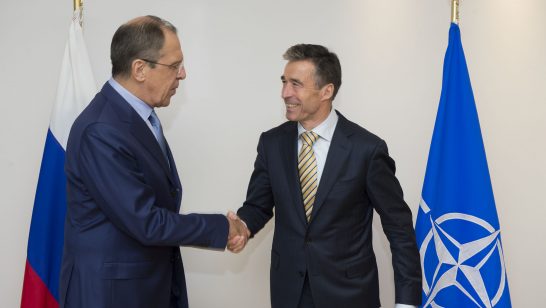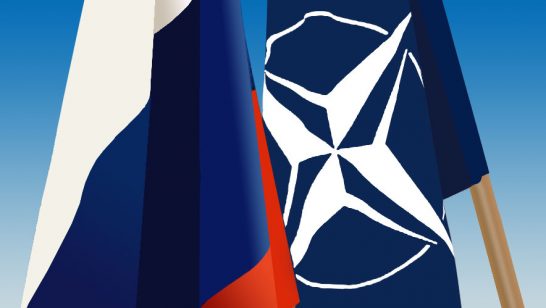
In November, Europe was shaken by a standoff at the Poland/Belarus border between Polish border guards and thousands of migrants attempting to pass through Belarus on the way to the European Union. The ELN asked network members from across the continent to comment on the crisis. This piece, part of a two-part article series that also includes members’ reactions to recent developments in the Ukraine crisis, elucidates some of the main debates that emerged between network members on the origins of the crisis, the most desirable responses, and the crisis’s implications.
Members’ views varied significantly on essentially every issue. Regarding Russia’s role, some placed responsibility for the conflict entirely on Russia, whereas others blamed Belarusian president Alexander Lukashenka. Relatedly, there were different views about the benefits of engaging diplomatically with either or both governments, even among members of a Network that is committed to dialogue across political divides. The situation currently seems to have been de-escalated through diplomacy. Yet there are concerns it could recur, with underlying tensions still unresolved. The divergence of opinions on the situation underlines the necessity to discuss what happened – both from a “values” perspective and from a “security” perspective, and both within Europe and between Europe and its eastern neighbours.
Debate 1 – Was the crisis orchestrated by Russia, an independent Belarusian foreign policy decision, or a mix?
Many Western governments have argued that while the crisis was directly felt between Belarus and Poland, Moscow pulled many of the strings. Network members had a range of opinions on this idea. Some agreed, stating that Putin “manufactured” the crisis on the border and was simply using Lukashenka to advance Russian foreign policy. Although Russia has denied any involvement in the crisis, some non-Russian network members argued that Russia has on a number of occasions incited crises to test the West’s resilience and unity, yet has positioned itself as a mediator or moderating force, gaining further political cards to play in international geopolitics. In their opinions, Russia has often fuelled tense situations in which dangerous miscalculations become possible, and this dynamic applies to the recent border crisis.
Others, however, expressed different views. For some, blame for the crisis rests mainly on Lukashenka’s shoulders. While Moscow may indeed have provided tacit approval, Minsk’s decision to send migrants west represents a specifically Belarusian quarrel with the EU. Thus, it is more productive to focus on Lukashenka as the main instigator when fashioning the response.
Finally, still others believed that Moscow’s role was overstated. One network member argued that Minsk “overplayed its leverage” and Moscow was “not interested in the crisis” in the first place. Minsk’s main goal was to force the EU to the negotiating table, thereby increasing Belarus’s leverage over Russia, and while this initiative appears to have failed, the initial impetus was an attempt to ease European pressure on Minsk. A member who placed blame on both Belarus and Russia also noted that Minsk is “an uncomfortable and irritating client for Russia,” not simply a puppet with which Moscow can do as it pleases.
These differing analyses point to the need for more open-mindedness on the issue: the fact that possibilities exist apart from simple Russian machinations is important in itself. The relationship between Moscow and Minsk is complicated, and in many instances, Russia and Belarus have diverging interests. A response should take this into account.
Debate 2 – Should the West respond with coercion or dialogue? Either way, toward which country(s) should efforts be directed?
Network members also expressed differing views on how the West should respond. Some expressed their desire for a strong response that emphasized pan-European solidarity, as well as a clear display of power. One member remarked that “Russia understands and respects only power arguments.”
However, among those that voiced their support for a “forceful” response to the crisis, there was significant differentiation in how that response should look. The question of sanctions was especially divisive: while some believe that current sanctions regimes should be strengthened, others are more sceptical. Some network members raised questions regarding a) the efficacy of hypothetical further sanctions against Belarus, b) the efficacy of applying additional sanctions on Belarus without sanctioning Russia as well, and c) the usefulness of sanctions themselves, as one member argued that sanctions “have convinced Russia that it has nothing to gain from courting better relations with Western countries.”
Other members suggested alternative methods of applying pressure. Among ideas mentioned were a) halting international aid to Belarus, b) threatening to pull international recognition of the Lukashenka regime, and c) border securitization. These ideas are by no means mutually exclusive.
However, not all members believed that a coercive response intended to demonstrate hard “power” necessarily represented the most effective way forward. A number of network members pointed out that the crisis is de-escalating precisely because of successful diplomacy, including diplomacy with the source countries that migrants and refugees have come from.
Additionally, members pointed out that there were long-term goals that had to be taken into account as well: the EU has an interest in working with Belarus on the migrant crisis, as it affects everyone involved. Furthermore, driving Belarus even further toward Russia would likely not be in Europe’s interests either. One member, for example, suggested a “West plus Belarus plus Russia” dialogue on migration.
Future Implications: Values and Security
The crisis on the Belarus/Poland border sprang up quickly and seemed to take many by surprise. Judging by the wide variety of responses to the crisis by network members, it is clear that the issue of migration and refugee flows, while already long-standing, remains controversial, and a common European response has still not been determined.
The refugee and migration issues of the last decade have already profoundly tested the EU’s values and have arguably been one of the most divisive and impactful issues in the Union’s history. Questions over unlimited intra-EU migration, and perceptions of a lack of “control” over borders, helped lead to Brexit and provided a significant amount of fuel to European far-right movements. Intra-European tensions over countries’ relative intakes of refugees and asylum seekers heated up as well, especially at the height of the exodus of refugees from the Syrian conflict in 2015-16, although a revised European pact on migration and asylum was agreed in 2020. Additionally, significant tensions have been seen between the EU and Turkey over refugees from Syria, , as well as between the EU and Libya over migrants from sub-Saharan Africa.
The Belarus border situation has added a new and different element as it involves adversaries of the EU. The lack of intra-EU unity in this most recent crisis can easily be exploited by Lukashenka and Putin to attempt to undermine the EU’s normative foundations. Russia had arguably acted in this manner before, during the height of the migrant crisis in 2015/2016, when it reportedly let migrants through the Finnish border to exert pressure on Europe. However, the impact of this small event pales in comparison to that of this most recent incident.
The migration and refugee issue is not entirely normative, however – there is also a significant hard security element in the Belarus case which was not as present in previous instances. While Turkey was a non-EU country with somewhat tricky politics, it was nonetheless a key NATO member. Libya, meanwhile, while certainly no friend of Europe, certainly does not pose an existential threat to Europe’s security architecture. The dictatorial Lukashenka regime and Putin’s Russia, however, are different. Both countries are under Western sanctions, and many Europeans consider Russia one of the biggest threats to European security.
Furthermore, this recent migrant issue ties in with other concerns regarding border security. In addition to Russia’s massive military build-up on the Ukrainian border, Poland has had a crisis of their own – a disastrous war game exercise earlier this year that caused some serious worry in the Polish government. In this context, the recent tensions on the Poland-Belarus border are only one part of a broader whole.
Overall, the whole situation underscores the need for real, meaningful dialogue. First, this must take place within Europe itself—if only a few thousand migrants can create an international scene of this magnitude, imagine what a greater number could do. While progress has been made with the 2020 pact on migration and asylum, there is still further work that needs to be done to align EU countries behind a common approach that upholds both values and security. Additionally, this dialogue must take place between the West and its eastern neighbours. Politicians and experts alike should continue existing dialogue and open up new pathways for mutual understanding, for the good of all involved.
The opinions articulated above represent the views of the author(s) and do not necessarily reflect the position of the European Leadership Network or any of its members. The ELN’s aim is to encourage debates that will help develop Europe’s capacity to address the pressing foreign, defence, and security policy challenges of our time.
Image: Wikimedia Commons, http://kremlin.ru.



